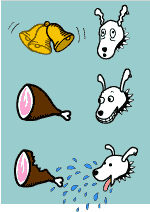Leadership

QoTD
Regulate Emotion In Your Responses
Udayakumar Nalinasekaren
Dec 21, 2010
 In an earlier post we saw the need to be emotionally aware. How can we use this awareness to our advantage? Humans are the most effective at context switching. Leaders, especially senior leaders, deal with many parallel contexts during a typical workday. Appropriate emotional states are to be stored and restored based on context. This is done using the human minds context store and for that matter at lightning speed. That is precisely why someone having a very normal conversation at one moment can potentially turn into a completely different animal in the next moment (if a different nerve is touched).
In an earlier post we saw the need to be emotionally aware. How can we use this awareness to our advantage? Humans are the most effective at context switching. Leaders, especially senior leaders, deal with many parallel contexts during a typical workday. Appropriate emotional states are to be stored and restored based on context. This is done using the human minds context store and for that matter at lightning speed. That is precisely why someone having a very normal conversation at one moment can potentially turn into a completely different animal in the next moment (if a different nerve is touched).
Watching your context switches is going to be a humongous task. We will most likely end up doing nothing else. So what else do we do?
The following approaches have worked well for me.
- Stall your response
Here, you consciously slow down on your response. Whatever you want to do or say, do it after a delay. During the pause, analyze your response and determine the emotion driving it. The world will not disappear in 10 seconds. That is probably all the time that is required to keep a hold on yourself.
- Be proactive - think before the transaction, not through it
This golden advice was handed in a platter to me by a well wisher. It has worked like magic all these years. Before you get to meeting someone, if you think for 5 minutes about the win you both need from that interaction and recall any contexts from the past, you become armed with what to expect. The moment you know what is potentially coming your way, you can remain in control of your responses. However, it is not possible to be proactive when you are meeting a stranger. That is where approach 1 may come in handy.
- Practice transcendental meditation
Apparently the part of your brain that originates thoughts and the part of it that controls breathing are the same. Breathing is an involuntary activity. If you tend to make breathing a voluntary activity, the brain starts surfacing overpowering thoughts and attempts to relegate breathing to the background. The person who taught me transcendental meditation told me to let go of these initially trivial thoughts and get back to conscious breathing. Eventually the overpowering thoughts that surface have roots in your intense emotional background. Let them go as well and get back to breathing. However the view of your backyard is now there for you to see.
- Practice Yoga regularly
You invest in your mind and body so well and the system just reciprocates the positiveness. Period!
As you can imagine, the level of personal committment required for each successive approach is of an order more than the previous one - that is until you get used to it as the way of life.
Still feel a rush of blood to your head during your interaction
Try taking a short break and take a stroll around. Talk to someone else on a different transaction.
My Artwork
Coming soon...Latest Blog Posts
Coming Soon
Archives
Search



